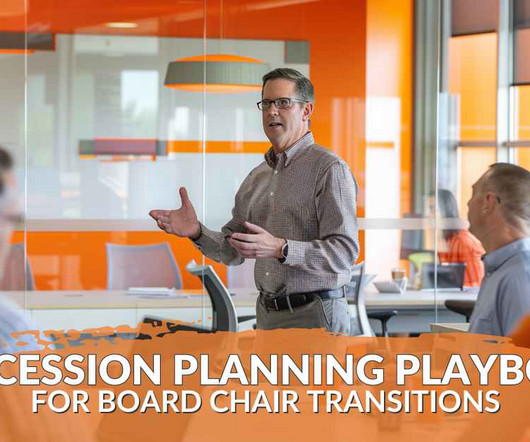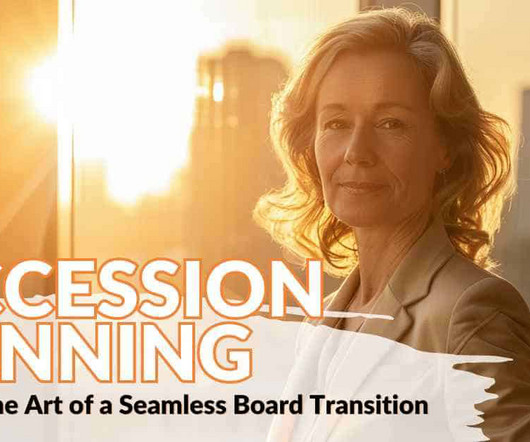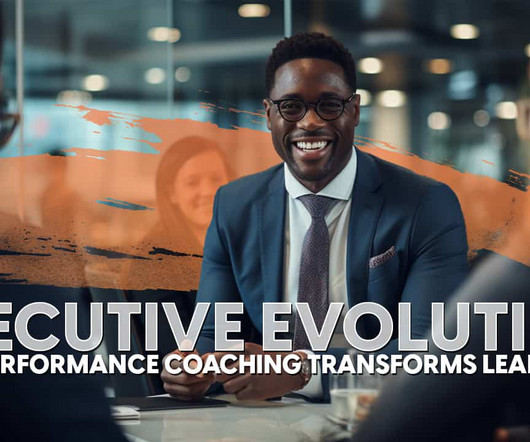The Succession Planning Playbook: Practical Tips for Smooth Board Chair Transitions
N2Growth Blog
JULY 12, 2024
Effective leadership succession fills the vacancy left by a departing leader, ensuring a seamless transition and continuity in the organization’s strategic direction and operations. Tools such as talent assessments, leadership performance reviews, 360-degree feedback, or personality tests can provide insights here.


















Let's personalize your content